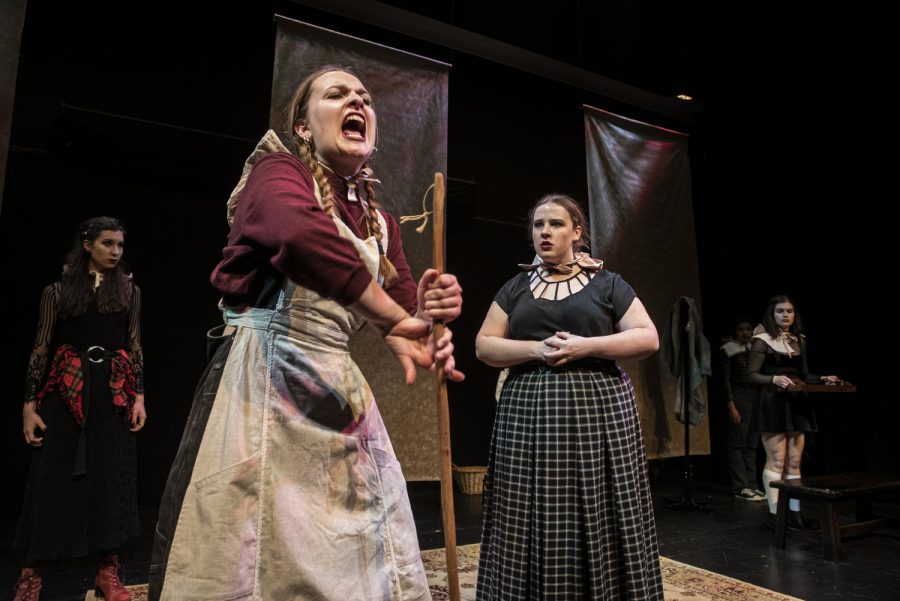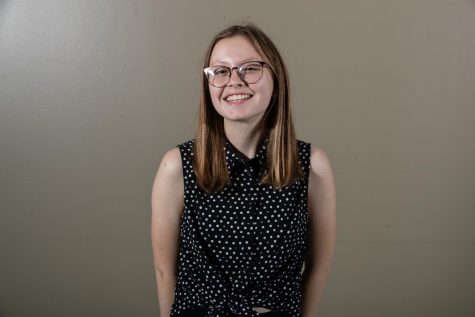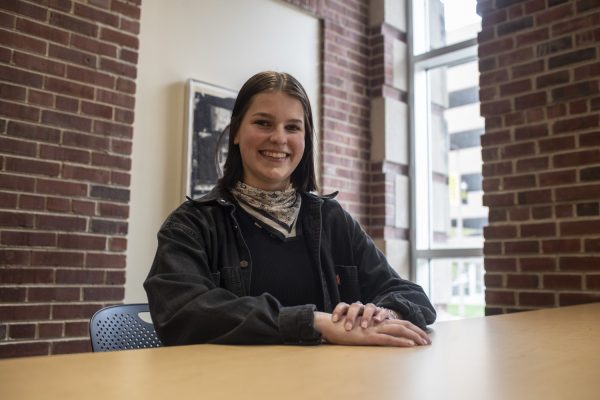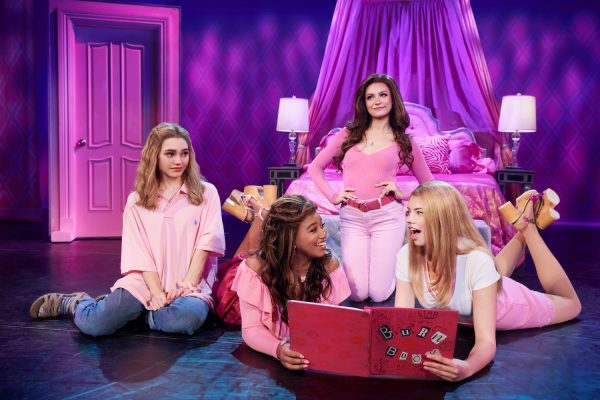UI alum’s play dives into themes of assigned roles and murder in a period piece with a punk twist
‘Bonnets: (How Ladies of Good Breeding Are Induced to Murder)’ pursues the stories of three women who’ve been assigned roles in society and are fed up with their situations.
The University of Iowa Theatre department rehearses a production of Bonnets: (How Ladies of Good Breeding Are Induced to Murder) in the Alan MacVey Theatre on Wednesday, November 13, 2019. In the scene, the indentured servant, Webster violently lashes out against her mistress, Mrs. Wolcott, after enduring decades of verbal abuse.
November 13, 2019
Written by UI alum Jen Silverman, Bonnets: (How Ladies of Good Breeding Are Induced to Murder) will premiere at the Alan MacVey Theater on Friday at 8 p.m. The play seeks to display how women are assigned roles throughout their lives, and shows them having enough of these roles, thus unveiling the “murder” portion of the play’s title.
Silverman has been named as one of the top producing playwrights by the prestigious American Theatre. Her production follows three women in three different time periods: 17th century France, 17th century America, and 19th century England — each with their own set of struggles. One of the main characters, Claire, is given the opportunity by her sister-in-law, Valerie, to have a lover for the first time; with the catch being; however, she poisons him after the act.
Claire’s attempt to poison the man goes awry, and obstacles arise, according to actress Clara Reynen, who plays the role of Claire.
“Despite being a pretty normal and expected thing for the period, having a lover was still such a secretive thing that after a while, having the same lover for too long can get really dangerous,” Reynen said. “So Valerie murders her lovers, weekly, so she can start fresh with a new lover who don’t know her patterns and acquaintances.”
Related: The UI Theatre Department’s production of Orlando is a work of Art come to life
The women are also metaphorically killing those who gave them specific roles.
“Even though they’re killing people in the play, they’re not killing people,” said co-director Mary Beth Easley, who directs alongside Kristen Hartsgrove Mooers. “They’re killing the assignments that these people have put upon them.”
The plot weaves in and out of three different storylines where the realms of time tend to waver, allowing characters to interact with one another. Even so, the time periods themselves are made in a modern style.
“The language is very contemporary, so we picked up certain physical mannerisms that are in that period, and combined that with contemporary attitude,” Easley said.
Bonnets is also written with a punk/camp vibe, and parades its aesthetic through its actors, who wear combat boots and overalls on stage.
“It’s really fun because we all have elements from that time period that our characters are in, but we all have punk influence as well,” Reynen said. “It’s just kind of a fun exploration of things.”
According to Mooers, the playwright’s script describes the setting as, “1600s-ish” or “1800s-ish.”
“[Silverman is] not overly particular or precious about honoring the perfect dramaturgical choices, it’s more about understanding the action and story of the scene,” Mooers said.
Bonnets does give a little history lesson on the behavior and culture of each time period, but Easley said that even in 2019, women are still being assigned to unwanted roles.
“I think people seek representation in storytelling,” Mooers said. “So, anytime we can raise a voice, that’s a good thing. Women particularly in the last few years have been really embattled in the media and the world. So, anything that can reflect that reality and raise a voice is a good thing.”















